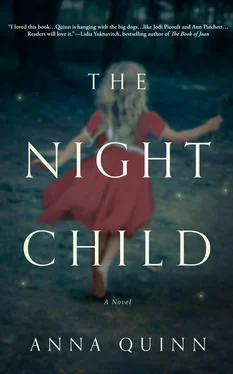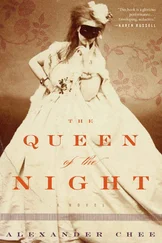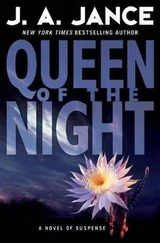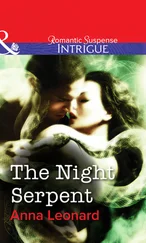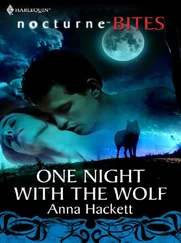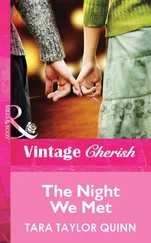Fiona sniffles. Looks at Nora as if gauging the truth of her mother’s words.
Nora kisses her nose again. “Everything’s okay, bug,” Nora says. “Please don’t worry.”
“Can we get a tree that touches the ceiling?” Fiona whimpers, still a bit uncertain.
“We’ll get the perfect one!” Paul says, suddenly forgiving, suddenly kind, making Fiona’s worry fade, making her smile. “We’ll get one so tall, we’ll need a ladder to put the star on top!”
“This will be fun,” Nora says, “I’ll just run quick to the bathroom and be right back.”
She shuts the bathroom door, sits on the edge of the tub and puts her face in her hands. Blood pulses against her temples. Her hands form into fists. She is angry. Angry at herself for being late. She bangs her fists against her head. Angry at David for making her talk about her mother. Bang, bang, bang.
In her mind she is seven, hiding in the bathroom with James, her hands pressed over his ears, trying to block out the voices of their parents fighting and slamming doors, slamming each other. Bang, bang, bang.
Paul revs the car engine outside the window. She needs to compose herself. “You are not your mother,” she whispers. “You are not your mother. And you will go out in the car with your family and chop down the tree.” She unclenches her fists slowly. “You will chop down the Christmas tree.” She pushes herself up from the tub, leaves the bathroom, walks outside, and gets in the car.
Fiona sings from the back seat: “Silent night, foamily night, all is calm, all is bright, ’round John Virgin, another child.”
Paul is staring straight ahead, his eyes fixated on the taxi parked in front of them. The taxi driver is holding the cab door open for a lovely young woman, maybe thirty, who looks as though she is dressed for the opera. She glances their way and for a moment it seems she might wave, but then she quickly steps inside the cab. Nora wonders if they’ve met before, asks Paul if he knows her. “No idea,” he says nonchalantly.
Nora smiles at Fiona then and begins to sing along with her, determined her daughter will feel what children ought to feel at this time of year. And for the second time that day, she thinks she might cry—something she hasn’t done for a long time—a sensation that startles her. Children ought not sing Christmas carols alone .
CHAPTER SIX: December 21, 1996
“I’m seeing a psychiatrist,” Nora says to John, her breath pulsing little clouds into the cold air, her heart racing with the worry of how much to expose. They’re strolling side by side around the school grounds, shoes crunching on dirty crusted snow over gravel, making their presence known to the smokers and potheads, not because they’re particularly concerned (they’re not, they both smoked plenty in high school), but because the parents need reassurance their kids are well looked after.
Nora and John sign up for the early morning patrol year after year because no one else wants to do it, and it’s given them time to become friends, to get to know each other beyond their professional lives. He knows how much she loves being a mother, how she’d do anything for Fiona, that she’d never known such love was possible, how the surge and pulse of it continually startles her and makes her want to be a better person. He knows how she practically stops breathing when she talks about a student who’s written words that cut to the core, who’s found a true way to express what they feel. He knows she loves to write poetry and will stay up late into the night until she finds just the right word, the accurate shape to describe something she’d seen that day, and that she’d like to climb through the underground cities of Cappadocia just to feel the ancient dirt under her nails.
Nora knows things about him too: That he was adopted by a Seattle couple (a gynecologist and a fourth-grade teacher) when he was a baby and that his birth parents were teenaged Cherokee kids and that sometimes he wonders where he’d be if he’d been born after the Indian Child Welfare Act. He’s shy, never married. He doesn’t like to cook and eats takeout while watching PBS documentaries or reading Faulkner. Sometimes he goes to powwows in Spokane or Yakima, but mostly he feels he’s not really welcome, that he’s just tolerated, treated like a spectator, a blunt instrument, a fraud, and he comes home depressed and unable to sleep for weeks because sounds of drumming, constant drumming, keep his eyes open.
“A psychiatrist?” he says, but now there is something in his voice that doesn’t sound right. “Really? But you’re one of the strongest people I know.”
Nora wraps her arms around herself, her fingers still cold through her gloves. “I’ve been having nightmares, and …” But she can’t do it. She can’t tell him about the face, about the voice whispering “Remember the Valentine’s dress.” She looks away. A few boys walk by, huddled and hunched under their backpacks, eyes to the ground. The bell rings.
“Nora, can we talk more about this after school?”
“I have to pick up Fiona …”
“Listen, vacation starts tomorrow, and if you want to take a few days off after that, if you need more time—”
“I’ll be fine,” she says and walks away, heart in her throat.
CHAPTER SEVEN: December 22, 1996
The next day, Nora dismisses thoughts of the hallucinations and prepares for Christmas, even though her relationship with God is rocky. She’s never understood the arbitrary nature of God, the logic behind “ some are blessed and some are damned ,” hates when people exclaim, “ I’m so blessed! ” every time they get a parking spot or survive cancer, as if people who can’t find a parking spot or die from cancer aren’t blessed and should work harder to earn God’s favor and protection. She’d stopped capitalizing “god” and attending Mass in secondary school when she learned about the Holocaust, saw photos of naked bodies piled high, knees and arms bent, shaved heads with their eyes open but not focused.
And it wasn’t only a matter of her not believing in God. She’d felt for a long time God didn’t believe in her either. She doesn’t remember when exactly this vague realization came to her, but she knows she was five or six when Sister Catherine emphatically told the entire class, “ God loves you; there is nothing you can do to make God stop loving you ,” and Nora had squirmed in her chair and felt with an absolute certainty this was not true for her. But maybe the doubt had come later, maybe it was when her mother had fallen down the stairs and died. Nora remembers how questions— Why would God love me anyway? Why should God love me? —had circled like sharks in her brain.
She remembers when she’d told her grandfather she no longer believed in a monotheistic God, could no longer attend Mass. A Sunday morning in 1975. She’d just turned fourteen. He was piling turf onto the fire, and the smoky dirt scent of it, the ancient plant and animal of it, permeated the room.
“Your grandmother already left for Mass,” he’d said into the red sparks. “Ye best run fast to catch up with her.”
She stood there in her wool sweater and jeans, her feet bare on the slate floor. “I’m not going to Mass anymore,” she’d said.
He prodded the turf more than necessary. He prodded so long she said, “Grandfather?” her heart loud against its bony cage.
He’d stood then and faced her, his blue eyes intent upon hers for several moments.
“Well now, you’re old enough to decide then, I suppose,” he’d said and sat down in his chair, picked up the Irish Times , and began to read.
Her grandmother only commented about her decision once. Nora lay reading Sylvia Plath in bed that evening, and her grandmother came quiet into the room. She stood at the end of the bed, her reddened, rough hands wrapped tight around the foot rail. “You’ve broken me heart,” she said, and when Nora opened her mouth, had intended to argue, to explain, her grandmother crossed herself and said, “We’ll say nothing more about it,” and left the room.
Читать дальше
